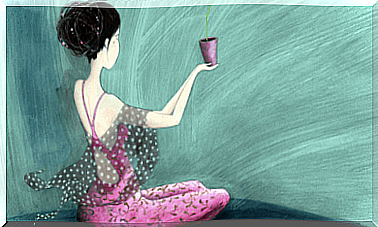The Wonderful Power Of Words

In 2004, a Japanese scholar named Masaru Emoto completed a research to prove the power of words. The experiment consisted in boiling the rice and distributing it in three equal containers. One of them had a positive label, the other a negative and the last a neutral one, to be used as a control.
Over the course of a month, every day he addressed the rice with the positive label pleasant and sweet words and did the exact opposite with the container with the negative label, through insults, contempt, indifference and hatred.
By the end of the month, the laughter that had received the pleasant messages had better preserved its appearance and did not give off an unpleasant odor. The bowl that received nasty words and insults filled with mushrooms, making the rice take on a dark color and smell of rottenness.
This experiment highlights the power we exercise through the messages we convey. If it happens with a simple laugh, what would happen to the people around us and with whom we communicate every day?
Perhaps this experiment belongs only to the sphere of pseudoscience and we do not pretend in any case to understand it as totally truthful and scientific, but we can use the message it transmits to us and discover how wonderful the power of words, both written and spoken, is.
The importance of the language we use
The language we use leads us to see reality in one way or another, it is not the same to say “it is impossible to achieve” than to say “it can be difficult, but at least I have to try” When we can use or give another shape to our messages, the idea we have can completely change.

It is important to understand that many times it is not what they tell us, but how they tell us. Words have the power to change what we think, they keep the will to give a new vision to what we have in front of us and, above all, they have the wonderful ability to give relief and serenity.
It is not a question of making an unreal use of language to change what we think and go from a “I can’t do it” to a “I will succeed”, however, we are able to use words that only bring about difficulties such as “always” , the “never”, the “I must” … and start using words that help us, like “maybe I never did well, but today is another day, I’ll try again”.
We are writers of our story
Language is at our service to help and shape our minds and ideas, we choose to be writers of our lives and to write a script full of strength and messages that stimulate us and do not limit us. Doing it can be very simple and the difference between doing it and not doing it is very big.

We try to change the words we address to others and to ourselves and we try to find the appropriate ones, both positive and functional; maybe just by changing the way we say them, the content will also change. If they help us, stimulate us and do us good, they are the right ones. On the other hand, if we see that the words we speak drain our strength, only limit us, do not help us or even harm others, perhaps we need to consider changing the language we speak to ourselves.








